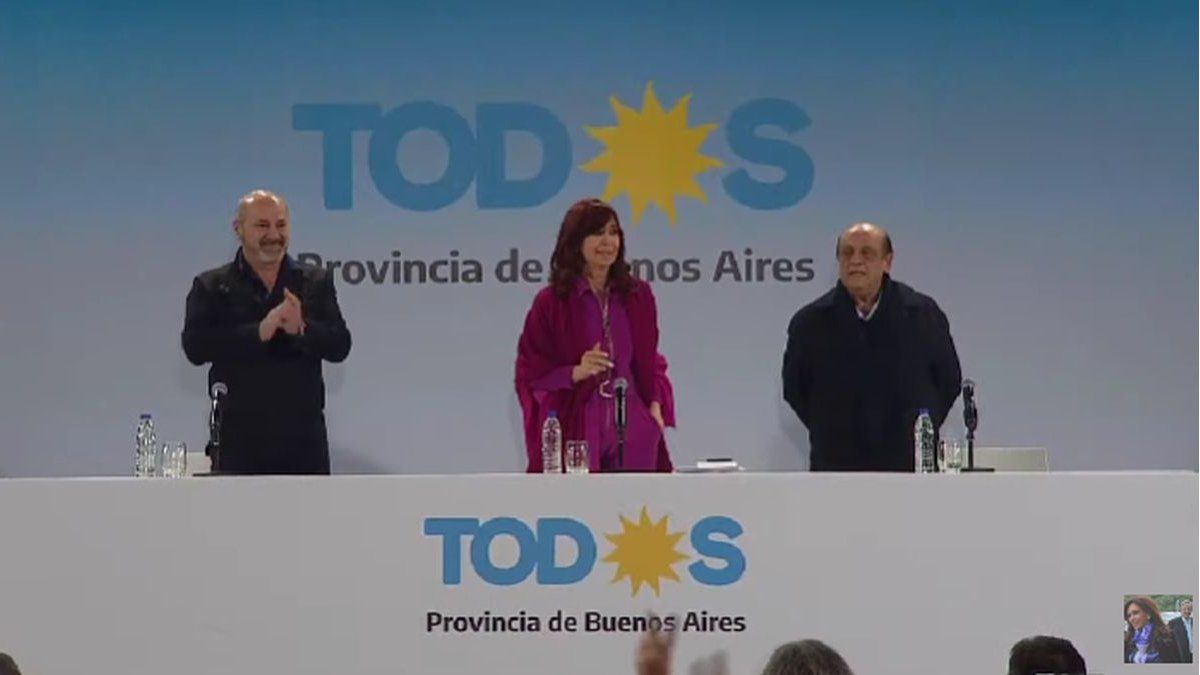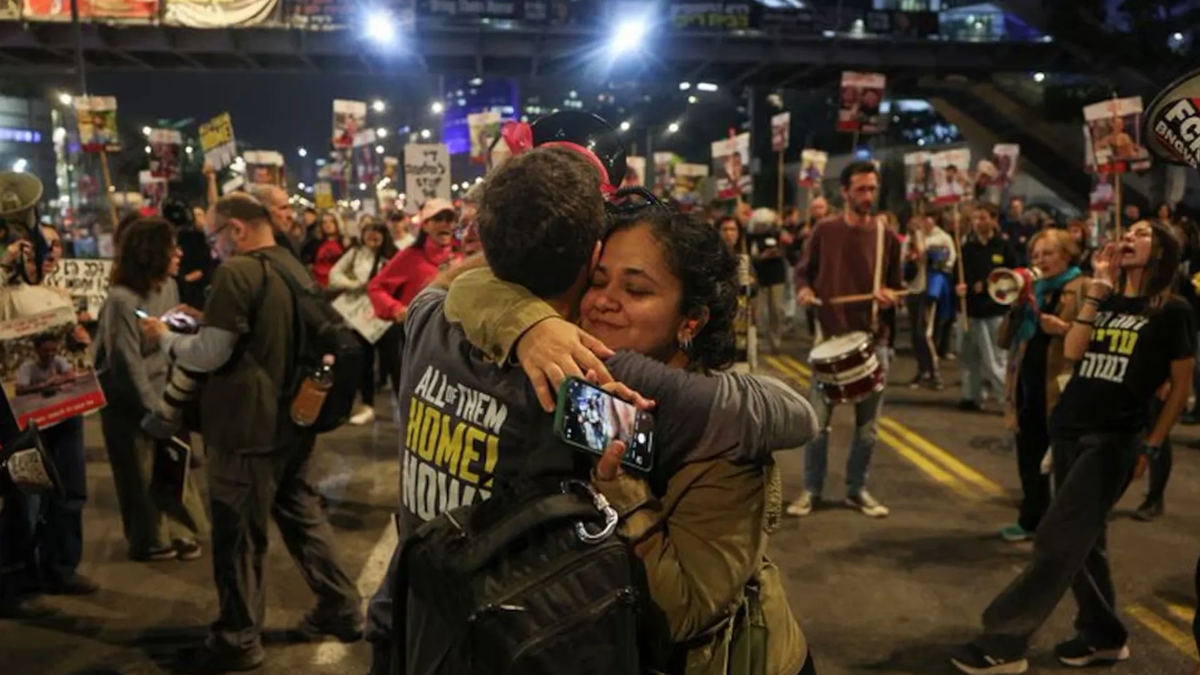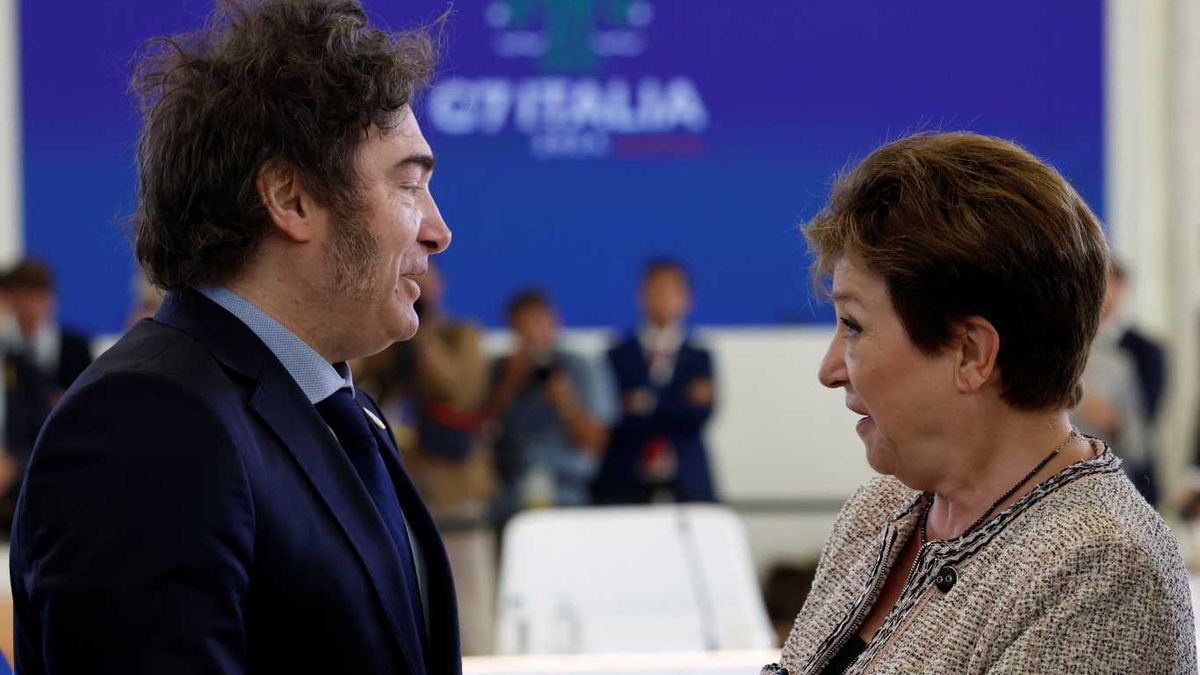This Saturday, in his speech in Ensenada, he explained in detail his proposal for social protection. “I talked a lot about it with Juan Grabois and I think we have to start discussing the need for a universal basic income“, he claimed. As this newspaper learned, in recent times the social leader and Cristina Kirchner held several meetings on this issue, given that from the Great Fatherland Front they presented a bill on a universal salary.
To defend the project, the vice president assured that resources have to be allocated “more intelligently”, given that there are 7 million informal workers in Argentina, which is the figure shared by all social organizations. “Why do they receive an extra income 1.3 million and not the 7 million? That is the question that no one can answer for me, ”she assured, referring to the million beneficiaries charged by the Enhance Work plan, today at $22,770 per month. “This ends up dividing the poor with the poor,” she argued.
The bill on universal salary, outlined by the Patria Grande front, was presented last May in Deputies, with broad support from different parts of the coalition. Even the Minister of Social Development, Juan Zabaleta, stated in the last week that “the universal salary deserves to be discussed.”
The proposal presented by the economist Itaí Hagman for a universal basic salary proposes a monetary benefit equivalent to a basic food basket for 7.5 million peopleamong which are informal, self-employed, unemployed and inactive. The biggest challenge is financing, in a context of fiscal goals signed with the IMF. In any case, at the Instituto Patria they consider that what was signed with the IMF are goals, so there is room for defining policies, especially in this international context.
As this newspaper learned, the tax cost gross could amount to 1.8% of GDP. However, discounting the current social programs, which would be absorbed by the universal salary, and together with the fiscal return of the policy, it could drop to 0.7% of GDPthat is, above $300 billion annually.
Cristina Kirchner referred to the fiscal costs in her speech, assuring that the Empower Labor represents 0.52% of GDP and reaches 1.3 million, while the AUH, which reaches 4.3 million children, represents 0 .40%. Social organizations consulted by Ámbito assured that there should be a “deeper debate” on the subject, which transcends who has to charge and how much, and above all they assure that “it should be above power disputes.”
On the other hand, Cristina Kirchner added a new request for the new economic team: incorporate the lump-sum salary increase tool. In fact, he revealed that he was part of a discussion with “a fellow union leader”, alluding to the meeting with Héctor Daer, head of the CGT. “There is a reasoning that the fixed sum diminishes the importance of the parities”. But on the contrary, he opined: “There are no strong unions in a weak State, but only when there are strong public policies.”
In fact, in the period 2002-2011, the median remuneration climbed 115%, explained above all by “the increases in the minimum wage and the increases in fixed sums carried out by the Government by decree,” according to a study on wages they did in the Ministry of Productive Development. On this point, Cristina Kirchner agrees with Martín Guzmán: the now former minister considered that it was a way to reach the income of the “working poor” who are outside social protection, but the CGT opposed it. Claudio Moroni, Minister of Labor, agrees: “As long as the paritarias get salary increases appropriate to how inflation comes, we have to let them work freely,” he had said in an interview with Ámbito.
Source: Ambito
David William is a talented author who has made a name for himself in the world of writing. He is a professional author who writes on a wide range of topics, from general interest to opinion news. David is currently working as a writer at 24 hours worlds where he brings his unique perspective and in-depth research to his articles, making them both informative and engaging.




